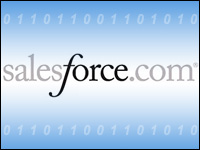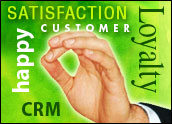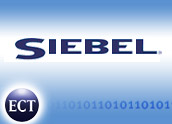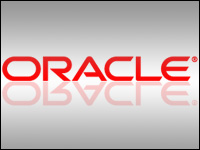Wednesday’s salesforce.com IPO offered a rare opportunity for smaller CRM companies to elbow their way into the media spotlight.
Many of these competitors claimed that they were taking customers away from the now-public company’s customer entourage. Because the IPO quiet period extends 25 days past the IPO date, a salesforce.com spokesperson said that the company couldn’t provide a comment to CRM Buyer regarding these claims.
Attacking the Leader
“The followers are always going to attack the leader,” Yankee Group program manager Sheryl Kingstone told CRM Buyer. “And they are always going to have to compare themselves to the leader.”
Denis Pombriant, managing principal at Beagle Research, made this same point in a recent CRM Buyer column, “Product Branding and the Advantage of Being Second.” Expanding on the column, Pombriant said that for companies to claim they are different in the same way as salesforce.com but cheaper only reinforces the leader’s market position.
“Cost really isn’t the way to differentiate,” he remarked to CRM Buyer.
Tough for Startups
Pombriant said that — from an evolutionary market perspective — new products and brands diverge from the mainstream.
Just as the personal computer naturally grew out of the minicomputer and the laptop out of the desktop computer, it is natural that hosted-CRM solutions become the logical diversification of traditional CRM. Being first, salesforce.com started off with the strong brand position of “no software,” he pointed out.
“The companies currently attacking salesforce.com are really just using the same ‘takeaway’ tactic salesforce.com used on Siebel, but now the ‘no software’ message reinforces [salesforce.com as] the market leader,” he continued.
“I don’t think the tactic has legs,” Pombriant said. “These companies have to deliver something different,” he said. “They need a different kind of application such as voice capture, online surveys, and focus groups — and then build their momentum with these.”
Differentiation, Differentiation, Differentiation
Kingstone agreed that most of the copycat startups don’t have much differentiation. Yet she believes that the salesforce.com feeding frenzy could hurt salesforce.com itself.
“Any competition is going to dilute potential market share and fragment the industry,” she said. “However, salesforce.com has huge momentum over any other competitor.”
According to Pombriant, it is hard for start-ups to crash the CRM party late because they suffer from the deficit of not having an entire product.
“It’s not the same market it was five years ago because customers want more than software,” Pombriant said. “They are looking for training, support, and uptime, and companies that can’t provide this are relegated to secondary status.”
“Why take the risk with a start-up?” Kingstone said. Her recommendation for enterprises looking for solutions in the CRM space is to look at a company’s financial viability — particularly for any hosted solution.
“Back in 1999 and 2000, companies jumped on the ASP bandwagon, and many went under,” she explained. “Largely because the hosted infrastructure involves a huge capital expense to maintain the data center and many companies went under because couldn’t keep pace with the expense the hosted environment required.”
NetSuite’s CRM Position
NetSuite CEO Zach Nelson spoke to CRM Buyer from London, where he was busy introducing his company’s latest product NetCommerce, an online solution integrating Web site and Web store functionality with financials, warehouse management, sales, and customer-support systems.
Nelson said that his company has carved out a different market position than salesforce.com while adding at least 100 customers from salesforce.com’s 7,000 customers. He critiqued existing CRM software for being only part of a company’s solution while lacking the one thing that is needed to drive customer relationships – the invoice.
Calling traditional CRM solutions “prospect-management systems,” Nelson explained that traditional CRM software fragments the customer experience because it can’t sell anything and only manages up to the point of sale.
“CRM leaves out order management, invoicing, and customer information payments, all important aspects of the customer experience,” he said.
According to Nelson, NetSuite’s position vis–vis salesforce.com is more like that of SAP’s to Siebel but aimed at smaller businesses.
“We’re taking salesforce customers who want more than it can deliver,” he said. “We’re taking the customers who are struggling with fragmented systems and want to consolidate and share data. NetSuite is trying to bring a total solution to a customer — from its Web site to its back office.”
Amazon.com Solution for the Masses
NetSuite’s new NetCommerce makes it possible for small and midsize companies to deliver an “Amazon.com-like” experience for their customers and partners — providing a complete view of a customer’s interaction with a merchant simply by logging into a Web site, Nelson explained.
“The definition of the customer experience is based on the order,” he said. “This type of end-to-end solution is something only Amazon.com has succeeded at so far, but now small and midsize companies can have the same capability.”
Touting NetCommerce’s “Amazon.com-like” experience, Nelson noted that, out of the blocks, NetSuite already has a thousand NetCommerce customers. He said that the company’s vision always has been to enable small and midsize businesses to run their entire operation on a single online application that combines CRM, ERP, and e-commerce.
“We can have this many customers using NetCommerce already because it’s always been part of the product,” he observed. “With customers, we tended to downplay the functionality because their reaction was ‘this is too good to be true,'” he said. “We stopped talking about it, but customers figured it out anyway.”
Customers Want Different Things
For her part, Kingstone believes that NetSuite’s approach makes its customers slightly different from salesforce.com’s. “NetSuite is for the customer who has QuickBooks and now wants to tie accounting, marketing, sales, and e-commerce into a consolidated database from one vendor,” she said.
“Companies want to be associated with a winner,” Kingstone remarked. According to her, they also want to compare and contrast the top three players — Siebel OnDemand, NetSuite, and RightNow.
“In the end, it is a sort of herd mentality, and the discussion often shifts to salesforce.com because everyone likes them and they provide the right functionality,” she explained.
Commenting on brand preferences, Pombriant explained that whenever buyers have to decide between the original brand and a similar competing one, they usually pick the original. “At this stage of the market, the smart vendor isn’t worrying about the customers it might be losing but about growing the market,” he said.
Kingstone believes that the market only has room for three to four players and that the rest will be relegated to second-tier positions, where they might either fade or prosper. Once there, however, they will never reach hundreds of millions of dollars in sales, she continued, citing Kana and E.piphany as examples of successful companies that haven’t yet broken through that financial barrier.
“There’s always some vulnerability,” Kingstone warned. “Whether or not salesforce.com succeeds depends on how well it can execute and continue to illustrate its viability and customer success.”

























































Are you kidding? Price is a major factor in any business decision. Just as the phone service has price wars, so too will the hosted software providers. At the end-of-the-day, they are just like the phone, electric, cable, etc…
That is one thing the software service model must figure out. If you are going to claim you are a service, you better be prepared to compete like one. Big difference in software is there are no monopolies so the benefits that phone service or an electricity company or cable provider has will not play in this arena.
The simple fact is in the 5-20 user market (which I bet is 75%+ of salesforce.com’s user base) is very price sensitive and a savings of $100-$1500 per month is substantial!